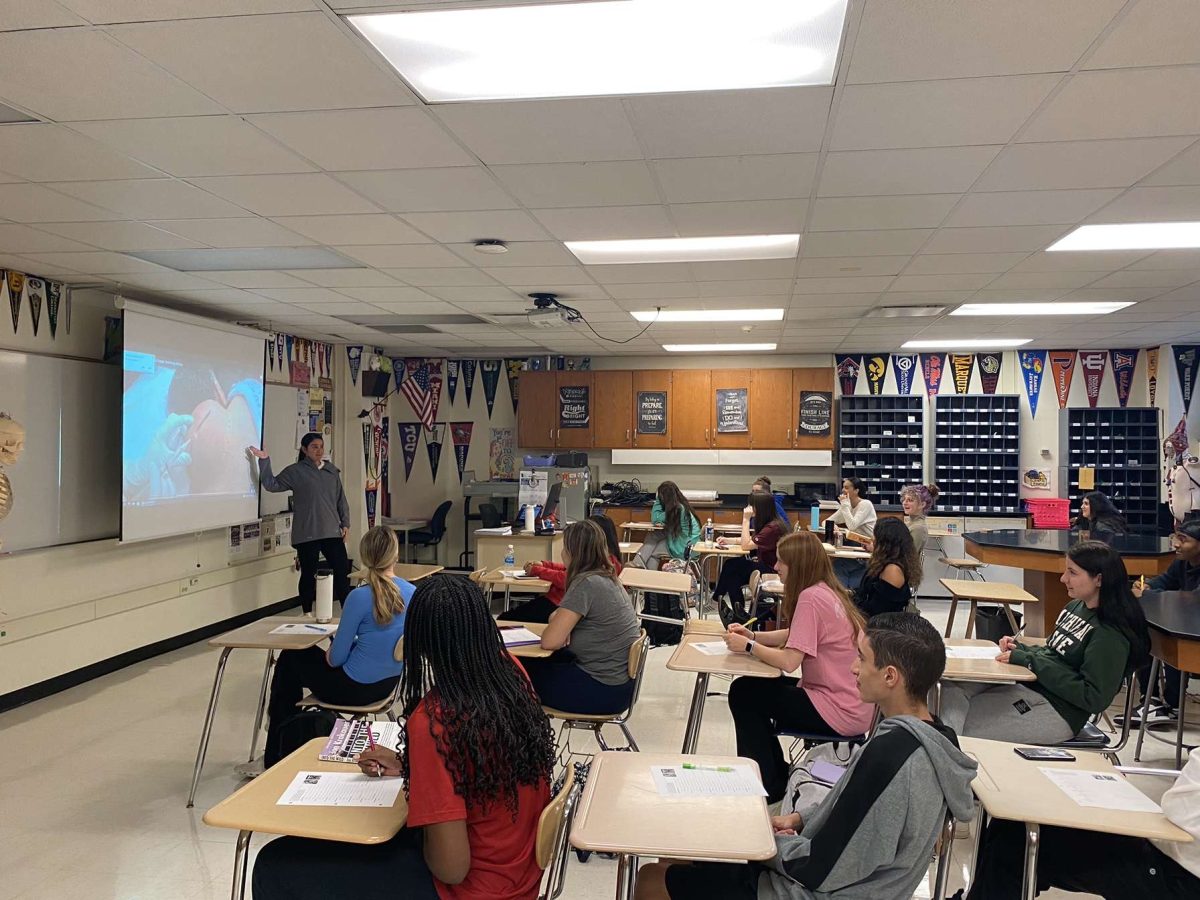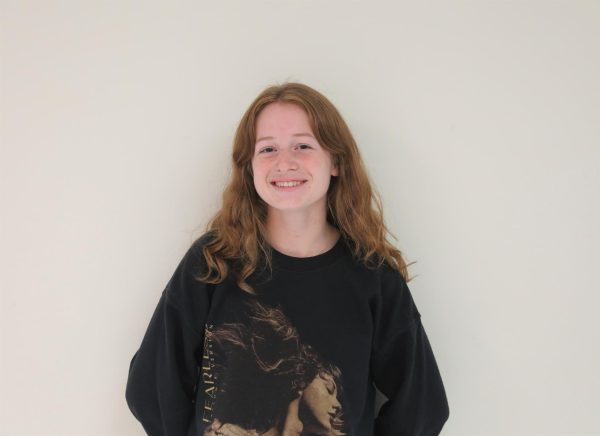LT’s science department has been upgraded with the introduction of a new course, Medical Terminology, taught by Intro to Healthcare Careers and Human Anatomy teacher Sylvia Tanious. The course acts as a language class, following the language of healthcare. Students learn Greek and Latin roots of words to help them put together names of disorders, diseases and procedures.
“Everyone at some point in their life has some sort of interaction within the healthcare world,” Tanious said. “If you are somebody that likes to learn a language and wants a good bank of knowledge, you can benefit from this class.”
The Healthcare Career path has expanded over the past few years, Tanious said. Originally, Anatomy and Sports Medicine were the only courses available for those interested in healthcare. Last year, Intro to Healthcare Careers was the first new option, and Medical Terminology followed suit.
“The school district wanted to see this pathway exist,” she said. “Our division chair helped us get the ball rolling. There’s a few other teachers that are also very invested in this pathway and giving students the opportunity to see what’s out there in healthcare.”
Besides just learning word stems in class, the students also cover abbreviations, acronyms, eponyms and some modern day terminology, and apply these ideas to real procedures, Tanious said.
“Obviously with any language it’s better to apply it,” she said. “For example if we’re talking about a cholecystectomy, then we will watch one so people can see that this is the removal of the gallbladder and see how that process happens. It’s definitely more language heavy, but they do get some application.”
Sam Girgis ‘24 is a student in Medical Terminology class that has plans to study healthcare after graduation from LT.
“It’s a fun class, and the teacher is fun,” she said. “It’s cool to figure out the meanings of the different parts of each word, and in college it’s going to help, knowing the basic word roots to figure out stuff easier.”
This semester-long class is available two periods both semesters to all students at NC, whether they are interested in healthcare or not, Tanious said.
“I think it’s really empowering to be able to understand what’s going on because sometimes the world of healthcare sounds really scary,” she said. “Sometimes people are too intimidated to ask for clarity, so it is empowering to be able to [learn and] understand what’s going on within your body or in a medical setting, but also empowering to go out and work in that world and not have to look everything up, or not be confused.”



















![Movie poster for '[Rec]" (2007).](https://www.lionnewspaper.com/wp-content/uploads/2023/04/rec-640x900.jpg)



